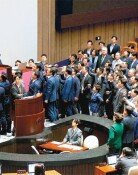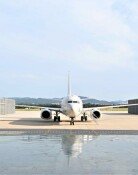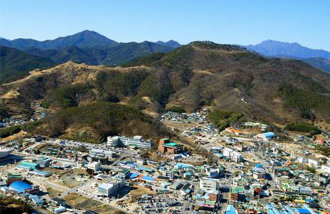Conflicts in the Korean Peninsula could become trans-regional
Conflicts in the Korean Peninsula could become trans-regional
Posted December. 16, 2015 08:43,

Joseph Dunford, chairman of the Joint Chiefs of Staff, said on Monday that any armed conflict in the Korean Peninsula is likely to expand into a "trans-regional" war.
He said at a seminar on national defense held by CNAS in Washington D.C., that a war with North Korea would not be confined to the Korean Peninsula because the North is developing various weapons such as ballistic missiles and cyber war capacities.
"If you would have thought about the Korean Peninsula some years ago, you would have thought about a conflict that we would have hoped to isolate on the Korean Peninsula," Dunford said. "As the North Koreans developed ballistic missile capability, well, obviously that`s started to affect other regional actors such as Japan."
Dunford said that a Korean conflict can no longer be isolated to the peninsula, adding that given intercontinental ballistic technology, cyber capabilities, space capabilities, information operations and so forth, it`s pretty hard to see how even a regional conflict would actually be anything other than trans-regional, multi-domain and multi-functional.
He pointed out that the fight against extremist groups such as Islamic State is a good example. U.S. planning is not really optimized for that fight," he said.
The U.S. official views North Korea as one of the four major threats to Americas national security along with Russia, China, and Iran. He says that North Korea and Iran are countries who constantly seek new ways to pose threats to their neighbors and export uncertainties, warning that traditional threats shouldn`t be overlooked even when we are facing a more pressing security threat by terrorists.
He elaborated on why he included Russia and China as major threats by saying that they are making investments in increasing military budgets to develop ICBMs and submarines and expanding military power in areas such as South China Sea.
Meanwhile, President Obamas diplomacy and security policy consulting group CNAS projected in a recent report that the KOR-US alliance, which was born to deter North Korea from attacking the South, will be transformed into a general form of alliance, which shares the common values of democracy and market economy, and joins the efforts to meet global challenges after North Koreas collapse and unification of the two Koreas.
The report said that a continued political and military intervention by the U.S. military will help maintain stability in the region even after Korean unification, suggesting that around 1,000 to 10,000 U.S. servicemen should keep reside within the South Korean territory.
It also pointed out that the major interest and role of the KOR-US alliance and the neighboring countries after the fall of the North Korean regime will be dismantling nuclear facilities. It expected that a unified Korea is likely to pursue a denuclearization policy, but going the path of developing independent nuclear weapons will trigger conflicts with its neighbors including the U.S.
kyle@donga.com







